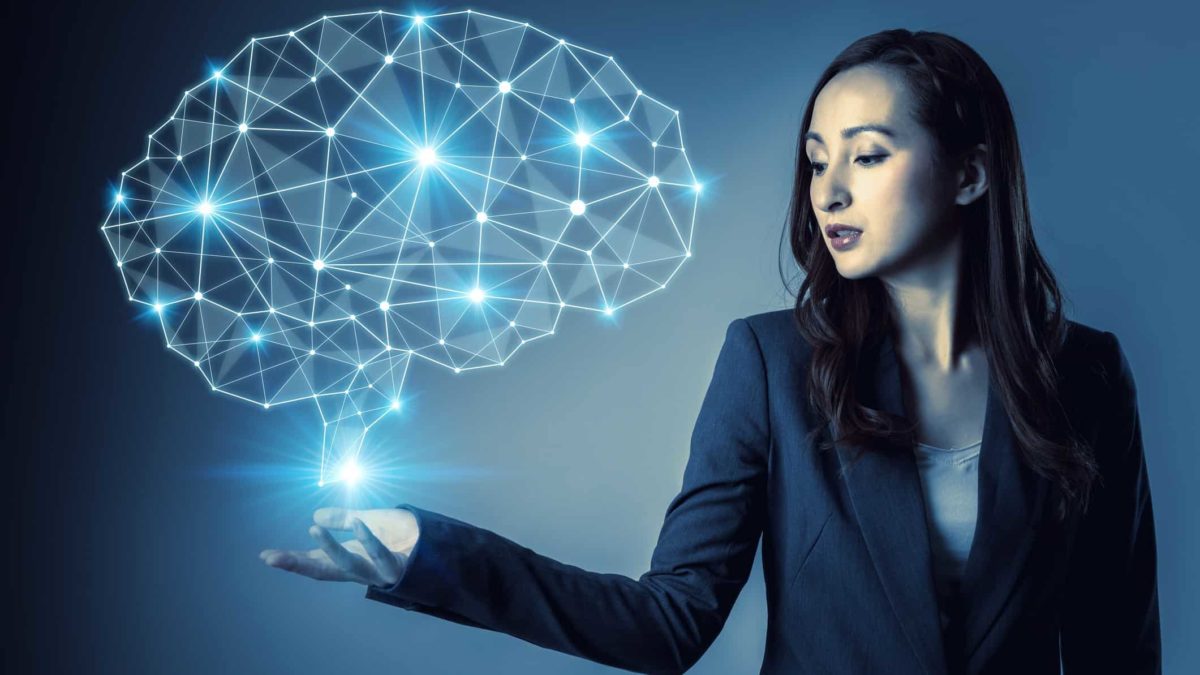What do you think about artificial intelligence (AI)?
The technology is the hot talking point at the moment after the spectacular rise of generative engine ChatGPT.
But for stock investors, is AI just a fad or a fair dinkum theme that they need to pay attention to?
Montaka chief investment officer Andrew Macken had some thoughts:
1. 'Last problem humans will ever solve'
Although the tech isn't quite there yet, eventually the real value of AI will be its "general problem-solving capabilities".
"AI will likely represent something like a 'skeleton key' that will unlock the solutions to the world's scientific, medical, and engineering problems," Macken said on the Montaka blog.
"This is why some experts much smarter than myself believe that 'solving' artificial general intelligence (AGI) – that is, building a model, or collection of models, that are general problem solvers – will be the last problem that humans ever solve."
Macken has no doubt AI will "unambiguously increase the productivity of humans".
"Already, tools around content generation – whether in text, images, or code, such as transcription and translation, just to name a few obvious ones – are drastically reducing the time and cost associated with many tasks."
2. Universal basic income might be necessary
As for AI's impact on the economy, inequality might impede potential gains.
"In the hypothetical extreme (just as a thought experiment), if [labour] is essentially no longer needed for most professional tasks, then we end up with most of us being unemployed with no source of income," said Macken.
"And the bulk of the economic spoils of this new economy will accrue to a small number of companies which own the AI models."
Economic inequality is a headwind for consumption growth, thus economic growth, and, by extension, earnings growth for ASX companies.
"While most people spend the majority of their earnings on goods and services which keeps the economy growing, the wealthy few simply can't spend enough of their wealth – especially as it expands."
This is why an idea that's been previously consigned as too radical could re-enter public discussions.
"Many experts who have been thinking about this future scenario for a long time believe that societies will need to adopt some kind of Universal Basic Income (UBI) over time," said Macken.
"Such an idea may sound really strange at first, but empirical studies are showing lots of counterintuitive benefits around greater risk-taking and entrepreneurship."
3. AI could trigger another dot-com boom
Could AI push some stocks into the stratosphere, as the internet did 25 years ago?
Macken reckons there's absolutely potential for that, but "it will probably look and feel a bit different" to the late 1990s.
"So, today, for example, we see some AI-related stocks that look overvalued due to the hype," he said.
"And we see lots of business[es] – in nearly every industry – that are going to be impacted by AI in a meaningful way. Some positively and some negatively."
Thus it could be a polarising effect. Not a pure boom because some companies and sectors will go bust.
"Our sense is that this transformation is going to split winners and losers in a much more definitive way than the dot-com boom did 25 years ago."
4. The losers to avoid
Which are the stocks and sectors that could be punished by the rise of artificial intelligence?
According to Macken, one big group of losers will be businesses that make their living from "charging a lot of money for services that can now be performed by AI models at negligible costs".
"Last month, for example, a business in the US called Chegg Inc (NYSE: CHGG), an online educational platform that assists students with their homework, told investors they now believed ChatGPT was having 'an impact' on new customer growth – and not in a positive way," he said.
"The stock basically halved in a day. There will probably be a lot more of these situations over time."
Then there are companies that are too slow, or even stubbornly refuse, to adapt to new intelligence tools.
"One way to think about it is something like this: if my competitors can all deliver the same product at a greatly reduced cost thanks to AI-based applications, then I had better reduce my costs too, or else the inevitable price deflation that's coming will wipe out my profits."
5. This is how investors can use AI
While no one would recommend leaving investment decisions to artificial intelligence just yet, there are ways to deploy the tool to assist your stock picking.
Macken breaks down the investment process into two distinct phases: "production" and "insight crystallisation".
Production is the research — "all the required reading, writing, and analysing" of potential ASX shares to buy.
Insight crystallisation is "all about thinking deeply and creatively about implications", calculating the likelihood of different outcomes and then deciding on "high-probability perceptions" that could be investment opportunities.
Right now, AI can assist investors in performing the production phase.
"It will allow investors to go much wider and deeper in a much shorter amount of time," said Macken.
"My recommendation would be to go wider and deeper, for sure, but also reinvest some of those time savings in more insight crystallisation. Ultimately, I believe this is where the value-add will remain for human investors for the foreseeable future."









